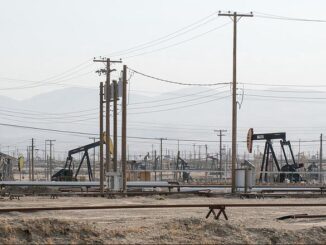Greenhouse gas emissions from the world’s largest tech companies may be up to eight times higher than their reports suggest. We’re talking about Google, Microsoft, Meta, and Apple — all of which have publicly celebrated their clean energy use and progress in decarbonization. But those figures don’t reflect the actual carbon emissions from their data centers.
The loophole lies in the reporting method. These companies claim zero emissions based on renewable energy certificates (RECs), while the electricity they use may still come from gas or coal plants. According to researchers, underreporting in some cases reaches as much as 662%. For example, Apple reported just 273 tons of emissions from one data center — while an accurate estimate put the figure closer to 3.8 million.
The key mechanism behind this discrepancy is RECs — Renewable Energy Certificates. A company buys a certificate and then claims to be using green power, even if the data center is connected to a standard grid still heavily reliant on fossil fuels.
This is how Microsoft can report net-zero emissions while running a data center powered by coal. It’s not fraud — it’s an accepted accounting method. But it distorts the true picture. In some cases, entire volumes of carbon emissions vanish from reports.

This model erodes trust in the industry’s climate pledges. The numbers on paper and the reality on the ground have become two separate worlds.
The industry itself is divided. Meta and Amazon continue to rely heavily on RECs and see no need to change. Google and Microsoft, at least in public, advocate for more accurate tracking — one that measures emissions based on actual energy use at each specific site.
All of this is happening as global demand for these core internet hubs keeps rising. The surge of online services, AI, and digital entertainment is putting enormous pressure on infrastructure. One vivid example is the rapid growth of the iGaming industry. Not long ago, online gambling was a niche interest — now, it’s everywhere. Eye-catching arcade games with dynamic gameplay, like Plinko or crash-style games, are drawing in massive new audiences. According to https://plinkogames.in/, Plinko is now available on most major online casino platforms, attracting thousands of new users every day. And all of this adds even more load to the internet’s physical backbone — raising further environmental concerns.
Even companies pushing for transparency aren’t giving up the very schemes that let them underreport. Google may promote location-based emissions accounting — but it still uses RECs across global projects.
So this isn’t just a numbers game — it’s a question of trust. While corporate PR campaigns continue to promise carbon neutrality, the real numbers stay hidden.
The explosive growth of AI and cloud computing has driven demand for processing power. That means more energy. A single request to a neural network can use up to 10 times more electricity than a standard query. Hundreds of data centers now operate 24/7 without pause.
Analysts estimate that by the end of this decade, data centers may consume more electricity than entire countries. Power outages are already being reported in parts of the U.S. due to overloaded grids.
Against this backdrop, knowing the real volume of emissions is critical — not just for reporting, but to ensure networks and energy systems can keep up with the demand. And to make sure climate goals aren’t just slogans.



